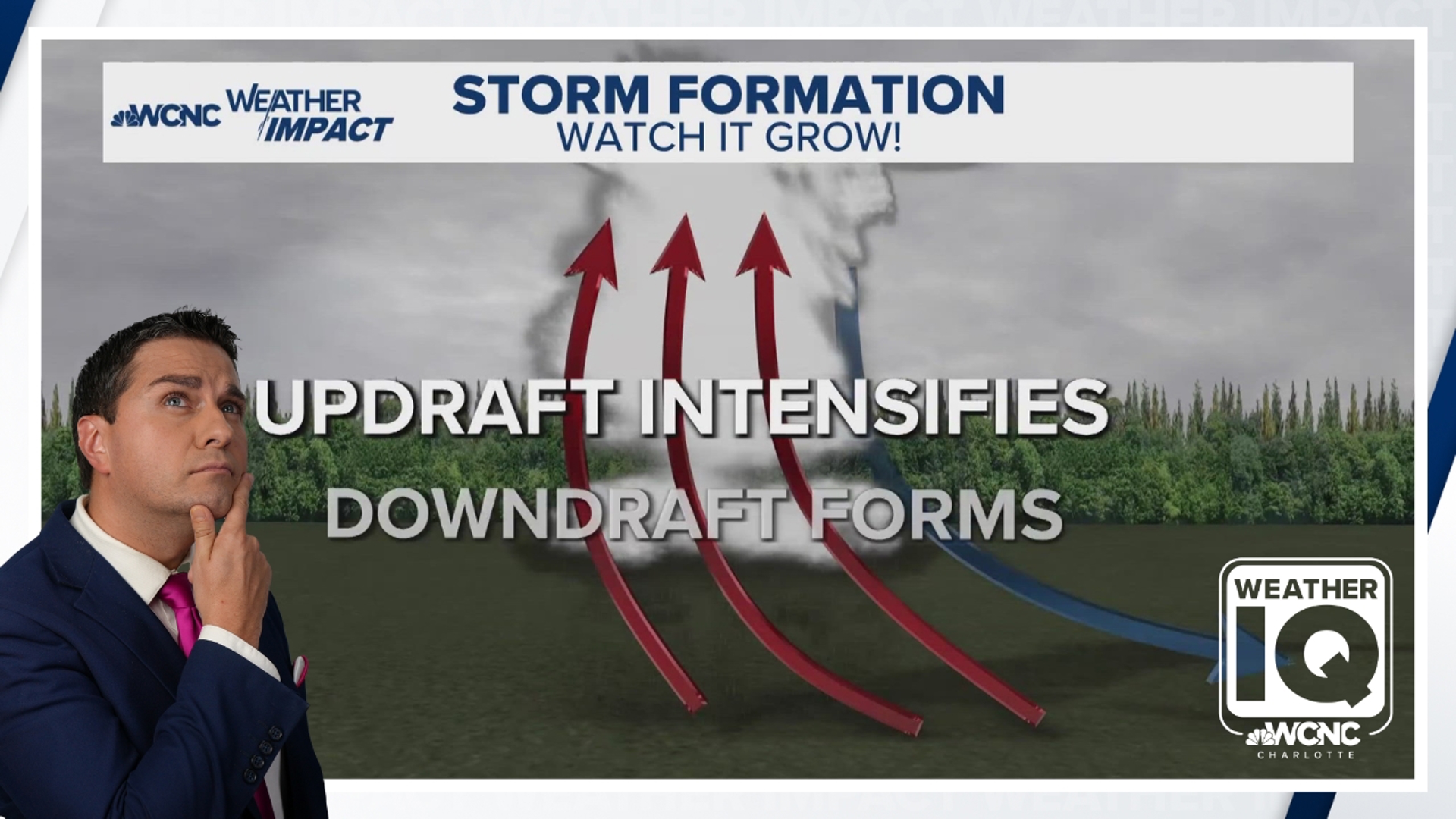CHARLOTTE, N.C. — The difference between light rain and a torrential downpour depends on several factors.
Starting with the basics
It starts with warm air, which holds tons of moisture. As the air gets warmer and more humid, it becomes very buoyant, meaning it rises with ease. Fact: A 1 degree Fahrenheit increase can mean 4% more moisture. The warmer the air, the more moisture it can hold.
Rain forms when warm, moist air rises and condenses into tiny condensation particles. These collide and merge together forming water droplets through a process called coalescence. Once these droplets get too heavy to be supported by a cloud’s rising air, they fall.
This vertical, rising air called an updraft dictates rain intensity. A stronger updraft gives more time for those droplets to form and grow.
Cumulonimbus clouds -- or as we commonly call them, thunderstorms -- have the strongest updrafts and thus the heaviest rain. Falling rain cools the air. This forms a downdraft. This falling air lowers rain intensity and is the reason why a thunderstorm ranges from light at the edges to the heaviest rain at the center.
Other factors
Topography: When air rises up a mountain, it cools and condenses quicker leading to heavier rain but dissipates as it flows down the other side of the mountain.
Weather systems (fronts, troughs and low pressure systems): Similar to the mountains, rain and storms develop faster in the presence of weather systems such as a cold front that drives warm and moist air much faster, often creating stronger storms and widespread rain.
Urban heat: Cities like Charlotte absorb more heat, which can sometimes form an urban heat island. This triggers storms and heavy rain.
Wind shear: Wind shear is the changing wind speed and direction with height. Wind shear drives a storm higher and makes it stronger, thus creating heavier rain than storms with no wind shear.
If you have any weather questions, you can send them to us at weather@wcnc.com -- those questions could very well could be our next Weather IQ.
Contact Chris Mulcahy at cmulcahy@wcnc.com and follow him on Facebook, X, Instagram and TikTok.

